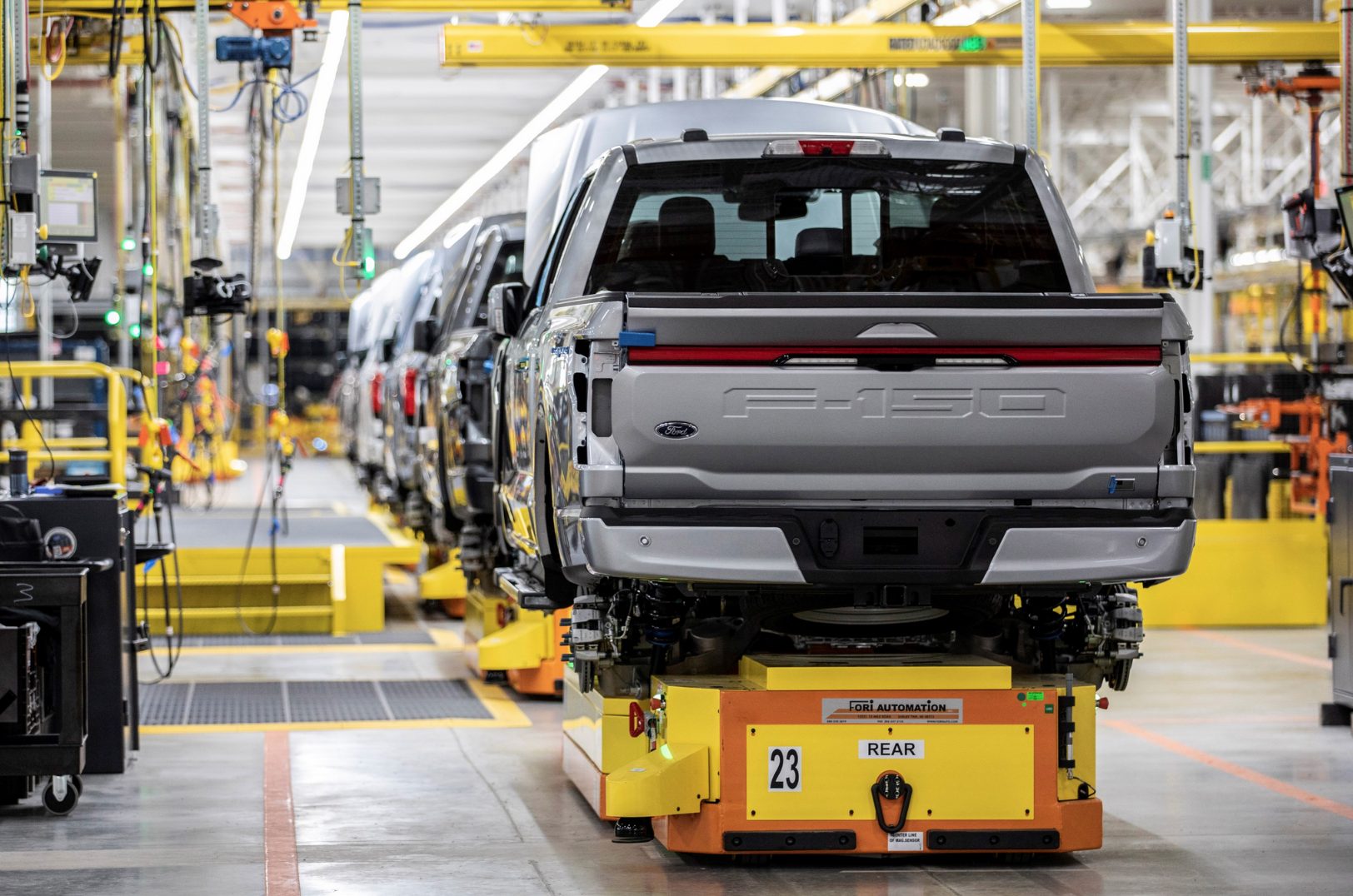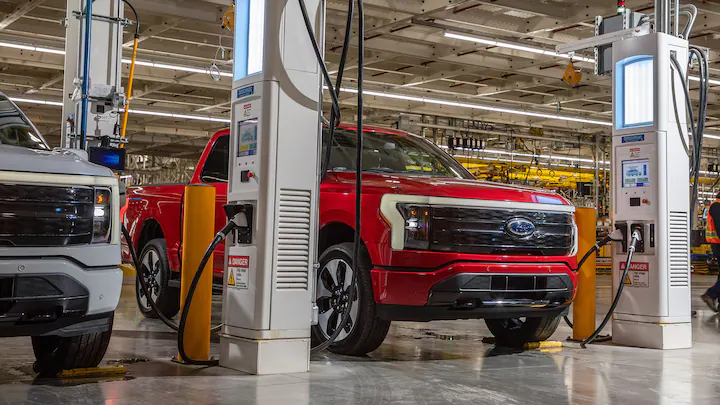
Ford Hits the Brakes on F-150 Lightning Production, Citing Demand
Ford is hitting the brakes on its F-150 Lightning production, pausing assembly of its flagship electric truck at the Dearborn, Michigan, plant from mid-November to early January. The reason? Ford says demand for electric vehicles, or EVs, isn’t keeping up with expectations.
The production halt will start after the shift on November 15 and resume January 6. Ford didn’t give specifics on how many jobs will be affected, but about 800 workers, including 750 hourly employees, are expected to feel the impact, according to Automotive News.
“We continue to adjust production for an optimal mix of sales growth and profitability,” Ford spokesperson Jessica Enoch said to the Detroit Free Press. But for a company that once doubled down on Lightning production to meet demand, this “adjustment” sounds like a reality check.
The F-150 Lightning’s journey started with high hopes when it was first unveiled in 2021. At the time, Ford faced a flood of eager customers and even paused reservations due to overwhelming interest. Just last spring, Ford was talking about adding 300 workers at its Rouge Electric Vehicle Center to ramp up production. Now, the same plant is pumping the brakes on its assembly line.
The cut isn’t an isolated incident. Earlier this year, Ford slashed Lightning production in half, laying off two-thirds of its hourly workforce. The company is grappling with hefty EV losses, reporting a $1.2 billion hit in its electric vehicle division for the third quarter. Ouch.
Industry experts say Ford isn’t alone in adjusting its EV strategy. As EV competition heats up and customer demand lags, more automakers are scaling back production and delaying launches. Stephanie Brinley from S&P Global Mobility points out that while EV demand is growing, it’s not growing as fast as once hoped.
Adding fuel to the fire, Ford’s CEO Jim Farley recently acknowledged a global “price war” in the EV market, driven by new competitors and mounting pressure to comply with environmental standards. To compete, Ford is shifting its battery production and working to cut costs aggressively.
And it’s not just the factory workers feeling the pinch—Ford’s managers are, too. Farley recently announced that bonuses for managers, tied to key performance goals, will be cut to 65%, a move aimed at keeping a tight grip on costs.
While Ford may have big plans for EVs, the bumpy road ahead shows just how challenging the transition to electric can be—even for an industry giant.


